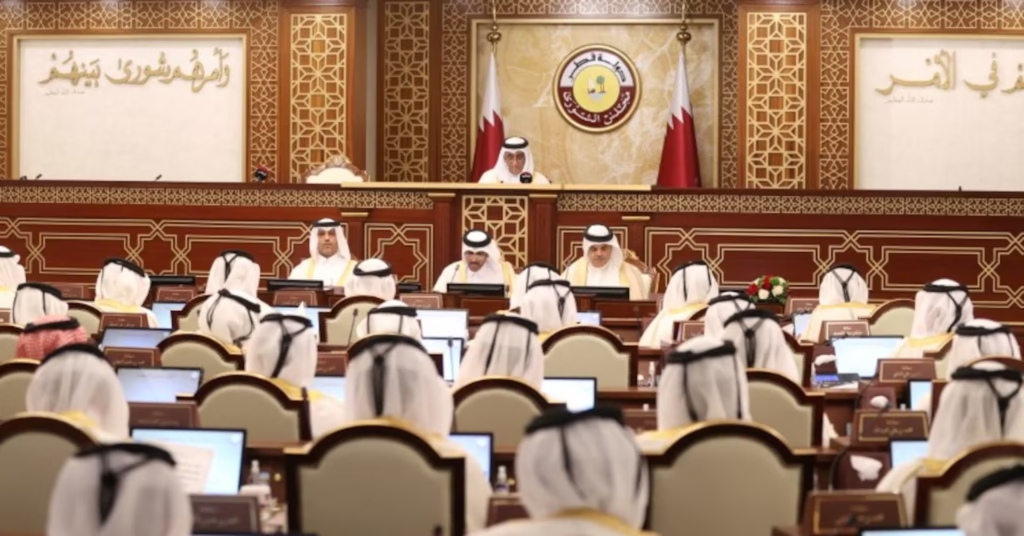On 5 November 2024, qatar referendum passes with 90.6% in favor swept through the small Gulf state, approving major constitutional amendments. The outcome shifts Qatar from limited legislative elections to a completely appointed Shura Council—a moment both celebrated and scrutinized.
What Is the “Qatar Referendum Passes with 90.6% in Favor”?
The phrase qatar referendum passes with 90.6% in favor refers to a national vote where citizens approved a package of constitutional amendments by an overwhelming margin. The changes include ending legislative elections and replacing them with appointments to the advisory Shura Council. The Ministry of Interior announced the results: 90.6% of valid votes were in favor, with voter turnout at 84% .
Background: From First Elections to Reverting to Appointments
Qatar’s journey towards a consultative body began with its 2004 Constitution, though direct elections for the Shura Council only occurred in 2021. Those elections allowed citizens to vote for two-thirds of the council, yet sparked tensions—especially among naturalized citizens who faced exclusion due to lineage criteria
Fast forward to October 2024: Emir Sheikh Tamim bin Hamad Al-Thani cited concerns about tribal rivalries and identity politics as key reasons for proposing reforms. He warned that such dynamics could threaten cohesion over time .
What Did the Referendum Change?
Key changes under the approved amendments include:
- Article 77: Eliminates elections for two-thirds of Shura Council seats, replacing them entirely with appointments .
- Article 80 and 117: Opens Shura Council and ministerial eligibility to naturalized citizens, aimed at promoting equal citizenship.
- Other amendments: Involve tweaking terms of service, dissolution procedures, and introducing new provisions for executive-legislative coordination—plus the repeal of outdated electoral articles .
Voter Participation and Reaction
Voter engagement was significant: 84% of eligible citizens cast ballots—a high rate by regional standards. Among those, 90.6% supported the amendments, with only about 9.2% voting against and roughly 1.8% of votes invalidated.
Emir Tamim hailed the result as a reinforcement of unity and justice, saying citizens “celebrated today the fruits of what the forefathers planted”. The referendum was described as a moment of national solidarity and streamlined governance .

Pros and Cons: Stability over Representation?
Benefits Highlighted
- Enhanced unity: By including naturalized citizens in high roles, the amendments address past exclusions and aim to foster cohesion.
- Governance efficiency: Appointments may reduce electoral tensions and streamline decision-making processes.
- High public approval: The strong yes vote gives the reforms legitimacy, signaling trust in leadership vision.
Criticisms and Concerns
- Rollback of democratic practices: Eliminating even limited elections is seen as a step away from pluralistic governance.
- Symbolic inclusion: Opening appointed roles to naturalized citizens does not ensure broader participatory rights.
- Lack of checks and balances: Appointive systems can reinforce executive dominance and reduce accountability.
Putting It in Context
This referendum marks Qatar’s second national vote since 2003—the first approved the 2004 Constitution and introduced limited elections . The 2024 vote replaces that brief electoral experiment with a more centralized system.
Regionally, Qatar isn’t alone in dialing back legislative participation. Kuwait dissolved its parliament in 2025, while other Gulf states maintain limited electoral functions . Many analysts see this as a broader preference for stability over electoral experimentation.
Subheadings for Readability (These also include the Focus Keyword)
- Why “qatar referendum passes with 90.6% in favor” made headlines
- A tale of elections and now appointments
- Main constitutional changes from the referendum
- Voter turnout and public response to “qatar referendum passes with 90.6% in favor”
- Pros and cons of the shift toward stability
- Inside Qatar’s referendum in regional perspective
- What comes next for governance in Qatar
Final Thoughts: What’s Next?
With the qatar referendum passes with 90.6% in favor, the country has clearly endorsed its leadership’s path toward unity and institutional reform. Yet, the long-term effects remain to be seen.
Will naturalized citizens truly enjoy equal political opportunities? Could civic spaces evolve to include more participatory governance? Or will Qatar’s future rest on stability above all else, with limited public input reserved for advisory roles?
Only time will tell how this balance plays out—but for now, the referendum marks a watershed moment in Qatar’s governance journey.
Do follow us: Instagram
Read More : Oil Prices Rise: 5 Shocking Impacts of Iran-Israel Conflict



